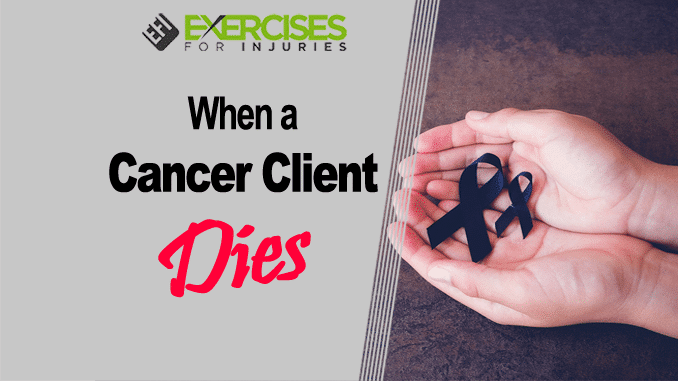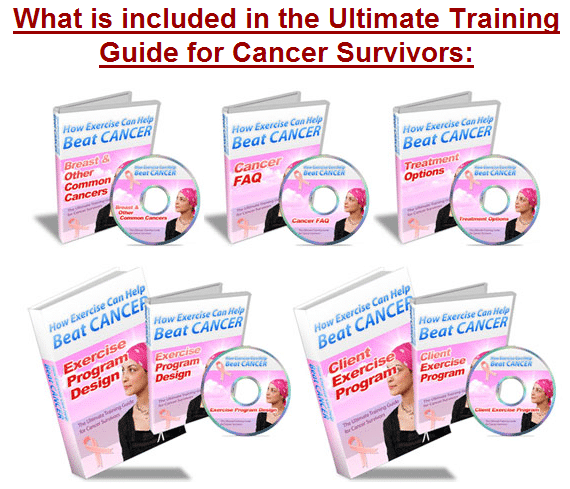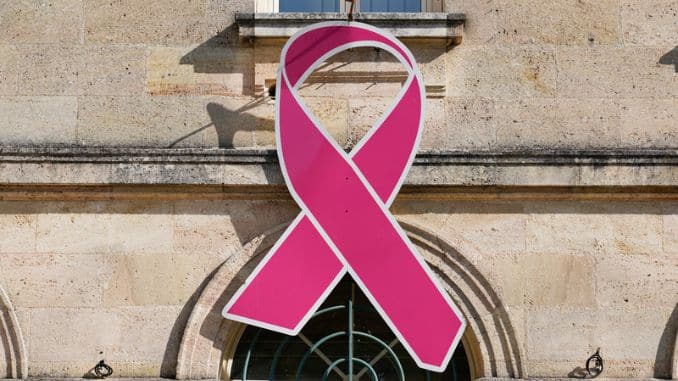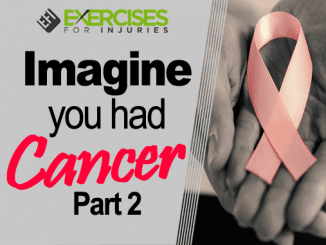
While treating cancer clients as a therapist, you don’t want to consider what happens after they pass away. It can’t be ignored even if you do everything you can to help your patients overcome cancer. Even if you have the courage and strength to assist cancer patients, there may come a moment when you cannot.
Working with cancer patients requires you to be a therapist with courage and strength. Even though it may seem awkward initially, talking about death can have a tremendous impact on your patients and their families if you are willing to bring it up.
It’s February, and it was World Cancer Day just a few days back.
When I hear about the spread of cancer, I think back to a woman I trained to run a half marathon. She survived her first battle against cancer. She met me to discuss how I could help her with exercise and training for a half-marathon.
It was so much fun and thrilling to train this lady. She was amazing! Positive and strong. We were both thrilled that she completed the half-marathon. She continued training on her own after the half-marathon.
A few months later, the priest from her church called me to inform me that she had died. She did not survive her second battle with cancer. This client is still very dear to me. When I think about cancer and exercise, I think of this client.
While I was training her, it was a wish that I had access to information on exercise and cancer. I spent hours researching and putting together the information.
Dean Somerset, my friend, created a program for health and fitness professionals with clients who are recovering from cancer.
The Ultimate Training Guide for Cancer Survivors (Save 53% Ends Today)
PTodaym Components:
- The Cancer FAQ – Dean, answers all your questions about cancer.
- Breast & Other Common Cancers – Increase your knowledge of breast cancer and other common cancers you might see in clients.
- Treatment Options For Cancer – Learn about the various treatment options that your client with cancer may be able to undergo.
- Exercise program design – This guide will show you how to create an exercise program tailored for your cancer client.
- Client exercise program – This guide and video presentation are for clients with cancer. This video guides them through the exercise considerations.
- What’s New with Cancer and Exercise – He gives an update on exercise and cancer. Here’s what he’s got to share with you:
– Contraindicated movements for clients with cancer
– Assessment of a new client diagnosed with cancer
– It is an important test that you do for a client with cancer.
– Leukemia Update and Exercise
– Exercise tips for people with brain cancer - Lifetime Updates – To help clients with cancer recovery and to improve their results. He always adds new material to the program.
Dean offers a discount of 53% on all orders, ending Today.
YTodayould considers whether you have a client currently recovering from cancer or if you think you might have one.
What It Means to Lose a Client to Cancer
A Cancer Client dies when their cancer progresses to the point where they can no longer fight the disease. They may die from cancer-related causes like infection, organ failure, or even a complication from treatment like radiation toxicity or chemotherapy side effects.
Sometimes, a client may die from causes other than cancer, like a car accident or a fall. Cancer clients may die suddenly, unexpectedly, or over months or years. When a Cancer Client dies, it can feel like a loss or failure for the social worker and the client.
Cancer social workers may feel the loss of a client as a failure to help them achieve their goals, keep them alive, or meet their needs. It can be devastating to lose a client you have worked with for a long time and have come to know and care about.
Why Cancer Clients Die
Cancer deaths happen for many reasons. Cancer treatment is not always provided when it should be, resulting in negative effects on the patient. Sometimes, adverse effects occur because the person did not receive adequate cancer treatment.
Cancer occurs when cells in the body grow and multiply out of control. Sometimes they happen because someone was too sick to participate in treatment. Social workers who work with Cancer Clients can help by educating people on how their lifestyle impacts their risk for cancer and what they can do to reduce that risk.
Many cancers are curable, but some are not and progress until the person dies. Some cancers are tough to treat, mainly if found late. Others are treatable but come with significant side effects that may make treatment not worth it.
Coping Strategies for When a Client Dies
Every social worker who loses a client will have a different experience and reaction, depending on the client and the context of their loss. The loss of any client can be devastating for social workers trained to help clients cope with loss.
Social workers who lose a client may feel anger, guilt, or even shame and may feel like the client’s death was their fault or that they could have done something differently to prevent the end. But there are things social workers can do to cope with the death of a client.
- Recognize your feelings. When you’re flooded with emotion and don’t know what to do with it, it can be hard to think clearly and move forward. Acknowledging how you feel after losing a client can help you better cope.
- Understand that the death of a client is not your fault. The end of a Cancer Client is not your fault. Cancer is an uncontrollable disease, and you can’t prevent it, cure it, or even make it disappear. You can only support your clients towards their goals, even if they ultimately don’t achieve them.
- Stay connected to other social workers. Social workers often have a network of peers they can discuss their feelings. It can help talk to other social workers who have experienced losing a client and give you perspective and advice.
- Find ways to process your emotions. You may feel many emotions after losing a Cancer Client, but don’t let them build up inside you. Find healthy ways to process your feelings, like going for a walk, meditating, journaling, working out, or even volunteering. These activities can help you feel less overwhelmed.
Conclusion
Cancer clients may die from a wide range of causes. Sometimes there’s nothing you can do to prevent it, but there are ways you can help yourself cope if it happens.
Recognize and acknowledge how you feel, and understand that it’s not your fault. Reach out to other social workers and find healthy ways to process your emotions. And know that even when a client dies, you can use it to grow and improve as a social worker.
The Ultimate Training Guide for Cancer Survivors <== Save 53% (Ends Today)






